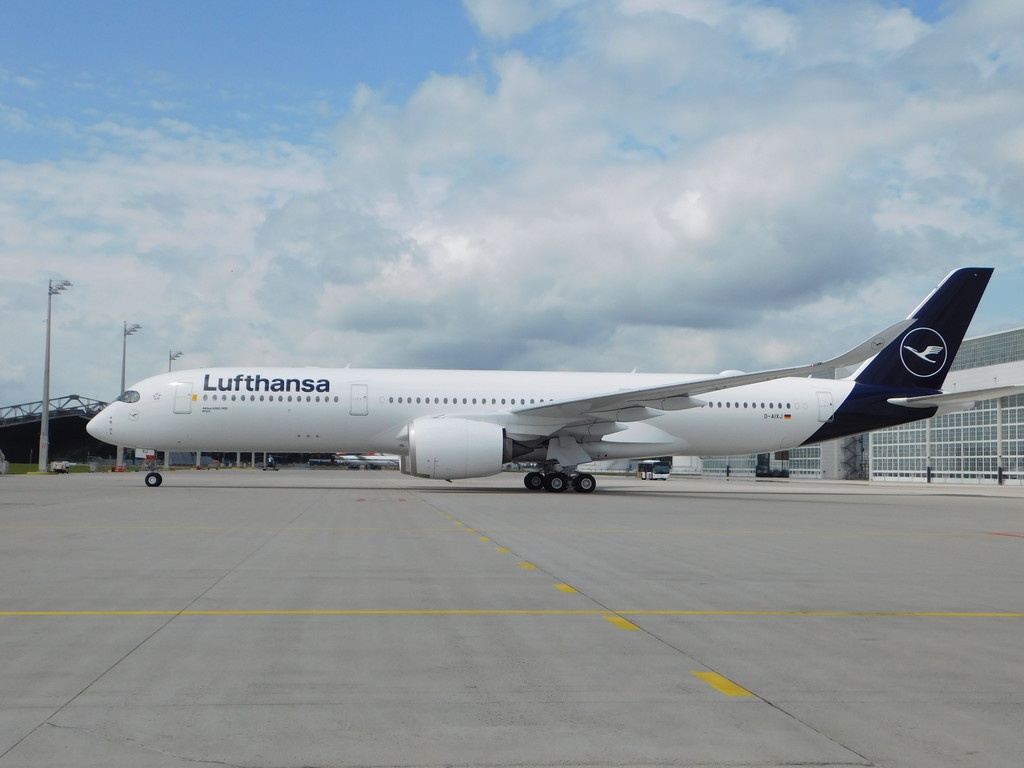
Toronto will be the first gateway for Lufthansa’s restart in Canada
− Initial service resumes with three weekly non-stop flights from Toronto to Frankfurt
May 14, 2020 (Canada). As countries gradually ease travel restrictions, the desire to travel and the need to see beloved family and friends has increased. The pent-up demand will see Lufthansa bolster the limited number of intercontinental flights to Canada with a resumption, in June, of service from one of its main Canadian gateways. Lufthansa plans to ramp up with three weekly, non-stop flights from Toronto to Frankfurt beginning June 3rd. Additional Canadian flights are currently being evaluated and planned for later in the summer.
The Toronto – Frankfurt flight adds an important, long-haul connection for Toronto-based travel to Europe, the Middle East, Africa and India. These include flights within Germany, as well as to cities in Austria, France, Italy, Spain and Switzerland. A total of 106 European destinations will be served next month. Flights to Tel Aviv are also being planned as are connections to Mumbai, Dubai, UAE and Johannesburg as well as to Abuja and Port Harcourt, Nigeria.
“Lufthansa flights to and from Canada have always been popular and well-received, and so this unprecedented halt of our flight operations is a difficult situation that we are working to overcome”, said Hans DeHaan, Senior Director Canada, Lufthansa Group. “We are committed to serving the Canadian market, and with Toronto as the first wave in our ramp up, the Lufthansa Group continues to reinforce its strong commitment to the region and to the country.”
Now more than ever, passengers are looking to travel with companies who place a priority on hygiene and cleanliness. The Lufthansa Group has always focused on delivering a premium travel experience and during this unprecedented time, Lufthansa continues to follow stringent hygiene guidelines and practices that are above and beyond the standard so as to ensure that the on board experience is focused first and foremost, on the public health of its passengers.
For the Lufthansa Group, safety is synonymous with the well-being of our passengers and crew. Beginning May 4, the airlines of the Lufthansa Group will require that all passengers wear a facial mouth/nose covering while on board their flights. It is also recommended that passengers wear the protective covering throughout their journey to include at the airport before and after the flight, and whenever the required minimum distance cannot be guaranteed without restriction. All Lufthansa Group flight attendants in direct contact with customers will also be required to wear a corresponding mask. The obligation to wear the mask while on board will apply until August 31, 2020.
Furthermore, and as a result of this new regulation, the middle seat that has thus far been left vacant in Economy and Premium Economy Class, will no longer be a requirement given that the facial covering is deemed to provide the necessary protection. However due to a decrease in flight demand, seats will be allocated as far apart as possible within the cabin.
It is important to note that infection on board an aircraft is unlikely. Since the outbreak of the pandemic, no concrete cases of transmission on Lufthansa Group flights have occurred. In fact, it must be stressed that all Lufthansa Group aircraft are equipped with the highest quality air filters, which guarantee air quality similar to that in a clinical operating room. The recirculated air is filtered, removing contaminants such as dust, bacteria and viruses. This process affects approximately 40 percent – the rest is added as fresh air from outside the aircraft. Due to these highly specialized filters, the cabin air is cleaner than the air people breathe on the outside. Furthermore, the aircraft airflow occurs from top to bottom. There is no horizontal airflow from side to side or along the length of the aircraft. Therefore, the airflow on board corresponds to the laminar airflow (air moving at the same speed and in the same direction with no or minimal crossover of air streams) of an operating room.
Customers must take the current entry and quarantine regulations of their respective destinations into account when planning their trip. Throughout the entire journey, restrictions may be imposed due to stricter hygiene and security regulations, for example due to longer waiting times at airport security checkpoints.





